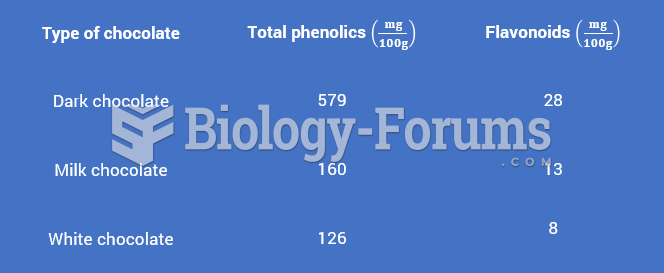|
|
|
Symptoms of kidney problems include a loss of appetite, back pain (which may be sudden and intense), chills, abdominal pain, fluid retention, nausea, the urge to urinate, vomiting, and fever.
The Food and Drug Administration has approved Risperdal, an adult antipsychotic drug, for the symptomatic treatment of irritability in children and adolescents with autism. The approval is the first for the use of a drug to treat behaviors associated with autism in children. These behaviors are included under the general heading of irritability and include aggression, deliberate self-injury, and temper tantrums.
Green tea is able to stop the scent of garlic or onion from causing bad breath.
More than 150,000 Americans killed by cardiovascular disease are younger than the age of 65 years.
Bacteria have flourished on the earth for over three billion years. They were the first life forms on the planet.







